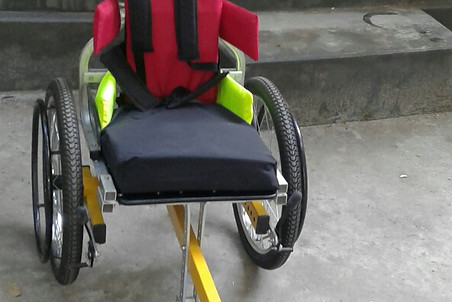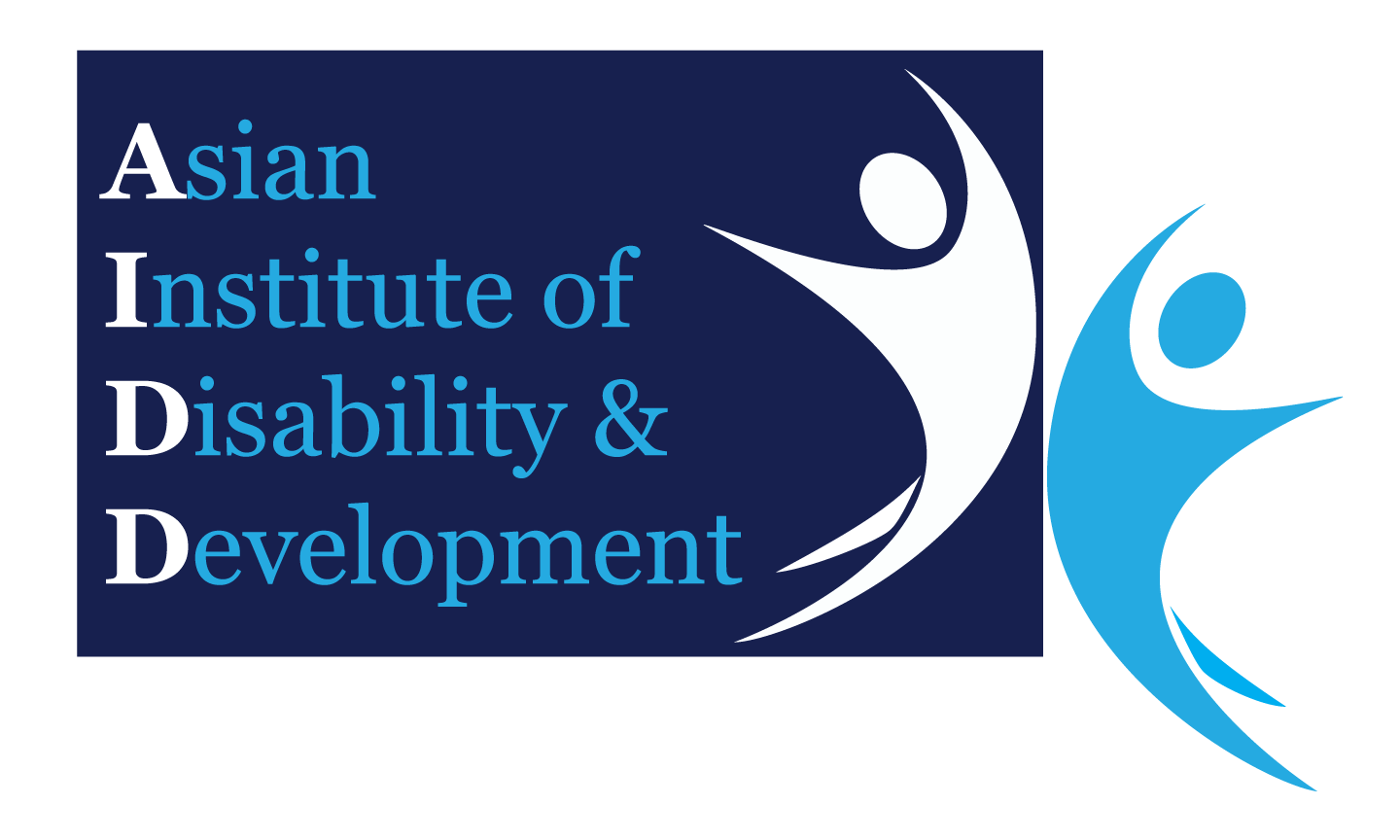
Fostering inclusion through evidence and empowerment


Services // Assistive Devices
Assistive Devices
Assistive devices and technologies are a vital component of disability research, development, and programs. Assistive technologies include items, equipment and other systems designed with the purpose of increasing, maintaining or improving the functional capabilities of people with disabilities.
We have identified that there is a need for assistive devices for children with disabilities in the communities over the course of our different studies. These needs were found to be largely unmet; Sirajganj district with a child population of 1.2 million has a requirement of 3,500 wheelchairs alone for children with CP (Cerebral Palsy). As we come across children with disabilities with unmet needs for assistive devices, we consider it our ethical responsibility to provide them with the right assistive devices. Till date, we have distributed 450 wheelchairs, 200 hearing aids, 15,000 spectacles, 1,000 white canes, and other assistive devices to children throughout the country as part of our projects.
Assistive Devices Centre
Our efforts have resulted in the establishment of a wheelchair manufacturing facility in the rural sub-district of Shahjadpur, Sirajganj. Following construction of the premises, procurement and installation of various machinery and equipment to work on different composite, metallic, and plastic components; the first wheelchair was finally built in late June 2017 according to specifications using locally sourced materials. The production unit, called an Assistive Devices Centre, has the capacity to produce 50 wheelchairs per month. Domestically producing modern wheelchairs at lower costs will greatly benefit children with physical disabilities and cerebral palsy from disadvantaged backgrounds in Bangladesh. It is hoped that in future parents and primary caregivers of children with disabilities can be engaged at the centre to produce wheelchairs. The facility will be upgraded to produce other assistive devices, therapeutic equipment and items such as AFO/KAFO braces. To find out more about this facility please visit Establishment of an Assistive Devices Centre.





Following identification in the local communities, the children and adolescents with disabilities are examined by medical experts, who are also engaged in disability-inclusive development and research activities, to determine the exact nature and extent of their disabilities so that appropriate assistive devices and rehabilitation may be advised. In collaboration with CSF Global and other partners a number of assistive devices are either sourced from other partners or locally developed and distributed among the children.
Disabilities might be grouped into four (04) major groups having requirements for different kinds of assistive devices.
Rehabilitative and assistive technologies are expected to allow people with disabilities to care for themselves and their families, engage in earning activities, access to school and other educational institutions, participation in the community, and the ability to appreciate things like music, arts, travel, sports, etc.
Custom Built Wheelchairs
Previously in demonstration of a cohesive multi-donor arrangement, custom-built wheelchairs designed, manufactured and funded by Wheelchair for Kids (WFK), Australia and transported with the generosity of Cerebral Palsy Alliance (CPA), Australia were provided to the children with disabilities through our networks. Additionally, the Rotary Club of Turramurra collaborated in ensuring a wheelchair accessible environment by funding of ramps at schools and homes. Our personnel have been trained in wheelchair assembly, adjustment and seating measurement through necessary training and imparting of skills, while family members and caregivers of the children with disabilities have also been oriented regarding the use and maintenance of their wheelchair and ramps. As of 2017 over 600 wheelchairs have been received with distribution underway and 150 wheelchair ramps have been constructed.
The wheelchairs are modern and customized devices incorporating various innovations in assistive technology and incorporating features entirely absent in conventional wheelchairs. The wheelchairs are designed in accordance with World Health Organization (WHO) Guidelines and compliance-tested by WFK to ISO 7176.8:1998 standards. Featuring 3 wheels, custom fitted postural support and fully adjustable seat width, backrest inclination, footrests, head rest, and back wheels all intended to cater to the requirements of individual children, the wheelchairs are designed to be usable on rough terrain that is commonly seen in rural communities. Also provided are a tool kit with some minor spare components, and assembly and adjustment instruction manuals.




Custom-Built Walker
AIDD in conjunction with major partner CSF Global has been working on developing a custom-built walker for children with disabilities, targeting children with Cerebral Palsy (CP). The designs are still undergoing evolutionary upgrades. Opportunities for collaboration from disability experts and institutions and other parties in the development and testing phases is available presently with necessary support and systems in place. The devices are intended to have high impact on the beneficiaries but be sustainable and low-cost at the same time through fabrication with locally available inexpensive materials and manufactured at local facilities engaging individuals such as family and household members of people with disabilities.


AIDD and Assistive Technology Research & Development
AIDD launched its Assistive Technology Research and Development Program following challenging circumstances associated with importing assisitive devices and to address the dire need for large numbers of locally development assistive devices and technologies. AIDD in collaboration with its key partner CSF Global is engaged in research and development of various assistive devices and technologies that are custom-built for the requirements of individuals with disabilities. Our very own assistive devices centre has been established for children with CP and other disabilities, see Establishment of an Assistive Devices Centre. Opportunities are available for experts and organizations interested in design and development of assistive devices and technologies. AIDD offers the support of personnel trained in handling assistive devices, access to various health facilities in different parts of Bangladesh for field trial of these devices. By building on existing experience and capacities, an evaluation mechanism is also in place for providing feedback assessments in order to determine the efficacy and efficiency of innovative technologies. Individuals and organizations also have the option to participate in existing AIDD projects and contribute with their expertise towards their development. The Research & Development efforts here include projects to design devices to improve the mobility of individuals with disabilities, thus benefitting not only themselves but also their household members.
